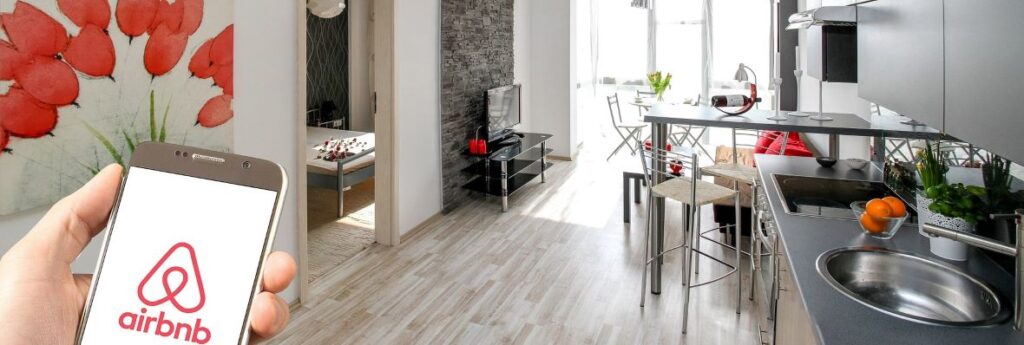Airbnb has changed the way people book accommodation, offering unique and affordable stays in destinations all over the world. Unfortunately, this rise in popularity has also led to an increase in scams targeting the platform’s unsuspecting guests, and a recent analysis of Airbnb complaints on Twitter reveals that nearly a quarter of all grievances are related to fraud.
According to Jonathan Merry, CEO of MoneyTransfers.com, these are the six most common tricks to watch out for this summer, and key tips on how to avoid falling victim to them:
1. Multiple Listings Scam: One of the most common scams on Airbnb is the multiple listings scam, where a host lists the same property but at different price points. The host will then take several bookings for the same time period and cancel the lowest-priced one, keeping the booking at the highest price point so that they make more money. Unfortunately, this leaves those who booked the lower price scrambling to find a place to stay, often with little to no notice.
Although Airbnb states that duplicate listings are not permitted, there are still many examples on the site where the same property is listed twice. Removing the price filter from your search can help identify if a property is listed at different price-points, indicating a potential scam.
2. Deceptive or Inaccurate Property Descriptions: One case study of this referred to a host who had advertised a remodelled apartment in Rome, only for the guests to arrive to find a basement-level dump, with a six-foot high ceiling and one small dirty window in the kitchen. Stories like this are not uncommon and highlight the fact that it’s crucial to carry out thorough research before booking. Take time to read through the past reviews to see what other guests have had to say about the property and if you’re still unsure then message the host for specific information on the amenities. If you’re aware of the address before booking, then you can also cross-reference the property on Google Maps or Zillow to further verify the accuracy of the description.
3. Doctored Images: Scammers often use fake or doctored images to make their rental properties seem more appealing than they actually are. Luckily, this is a fairly straightforward scam to spot; simply head to the ‘accuracy’ category in the reviews section and look for specific terms like ‘photos’, ‘images’ or ‘accurate.’
Additionally, you can perform a reverse image search of the listing’s photos to see if they have been used elsewhere or on different properties. You may find that some properties also use verified images which are taken by an Airbnb photographer rather than supplied by the host. On average these bookings tend to attract 8.98% higher occupancy rates.
4. Airbnb Account Hacking: While account hacking is less common, it is still a highly damaging scam. Scammers may trick users into supplying their login information and password, allowing them to book properties using stolen financial details. This scam was first identified by Christopher Boyd in 2016, and the main takeaway from his findings is that customers should always double-check the website URL before they enter their log-in credentials.
Legitimate Airbnb URLs should begin with “https://www.airbnb.com” and not include any additional domain names. Travel bloggers Practical Wanderlust found themselves the unfortunate victims of this scam and shared their experience as their account was hacked to book properties in China. Customers should be cautious of phishing emails that mimic Airbnb communications and never provide personal information unless they are sure of the legitimacy of an email. If you are still concerned, Airbnb can set up two-factor authentication as an additional security layer on your account.
5. Fake Reviews: 0.71% of all Airbnb complaints on Twitter relate to either fake reviews or fake listings. While reviews play a crucial role in establishing trust on the platform, the reality is that scammers can manipulate them to deceive guests. Hosts may create fake accounts or enlist family and friends to leave positive reviews, while competitors may leave negative reviews on other hosts’ properties. To avoid booking a poor rental, focus on properties with a significant number of reviews and pay close attention to the two-, three- and four-star reviews. You can also use the search feature to find specific information mentioned in the reviews that is important to you.
6. Payments Outside The Platform: For financial protection, all payments and communications should take place within the Airbnb app or website; this is particularly useful if you find you need to request a refund for whatever reason.
Scammers may try to convince guests to pay through non-Airbnb apps, bank transfers or other websites, sometimes offering discounts in return, and this can lead to a potential loss of money or a double payment. If a host asks for payment outside of the Airbnb platform, consider it a major red flag and report the message straight to Airbnb. If you have fallen victim to an Airbnb payment scam, Verified also recommends reporting the fraudulent transaction to your bank, as they may be able to reverse the money transfer or recoup some of your losses.
While 96% of guests have a seamless experience with Airbnb, it is still essential to take some precautions. In summary, these include making sure that you’ve conducted thorough research and not accepting any discounts or offers outside of the Airbnb platform. For added assurance, you may want to consider properties with verified images or those listed with Airbnb plus. Requesting virtual tours and doing a reverse image search can also help to validate the authenticity of the listings.

